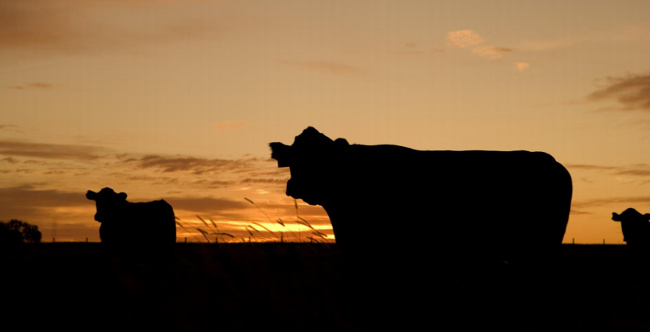Recently a large Australian agribusiness applied to create a "Free Range" trade mark for beef cattle. In a submission opposing the trade mark, Vegan Australia highlighted some of the many detrimental impacts of beef production, including on the animals themselves, on human health and on the environment.
The submission, "Free range is not the answer", was written by Paul Mahony in response to a request for comments on an application by the Ceres Agricultural Company to register a Free Range Pasture Finished certification trade mark. Below is the Executive Summary from the submission.
General
- Whether produced in free range or more intensive systems, red meat is extremely detrimental to animals, human health and the environment.
Animal Health and Welfare
- Many exemptions in favour of the livestock sector apply to Prevention of Cruelty to Animals legislation in Australia (and similar legislation elsewhere), thereby permitting cruelty.
- There are no legislated free range standards, and the standards proposed by Ceres offer only limited protection to animals.
- Free range animals are usually slaughtered at the same abattoirs as more intensively farmed animals. Regardless of the effectiveness or otherwise of different stunning methods, the sights, sounds and smells of an abattoir create a terrifying experience for animals awaiting their fate.
Safety of Meat
- The evidence of red and processed meat's adverse health impacts is overwhelming, whether or not produced in a free range system.
- Oxford University researchers have estimated that that if the global population were to adopt a vegetarian or vegan diet, more than 7 million lives would be saved per year by 2050 due to reductions in the rate of coronary heart disease, stroke, cancer, and type 2 diabetes. More than half the avoided deaths would be due to reduced red meat consumption.
Environment
- Beef production is a key contributor to global warming, land degradation, air and water pollution, introduction of invasive pasture grasses, loss of biodiversity, and destruction of the Great Barrier Reef.
- In addition to dealing with coal-fired power, we will not achieve a critical threshold level of 350 parts per million of CO2 in the atmosphere without massive reforestation. The only way to meaningfully reforest in the context of the climate emergency is to reduce the extent of animal agriculture.
- Beef from grass-fed cattle is far more emissions intensive than beef from mixed feed systems, involving grain and grass.
What is the Answer?
- Ceres' proposed CTM certification may cause consumers to wrongly believe that critical problems involved in red meat production do not exist in relation to the relevant products.
- As such, we believe the proposed certification should be considered unacceptable in terms of the spirit, and potentially the letter, of consumer protection regulations.
- A general transition from animal-based to plant-based diets is essential if we wish to maximise our effectiveness in protecting the environment, avoiding catastrophic climate change, preventing animal cruelty, and achieving optimum human health.
Read the full submission here (click on the image to display PDF file).

